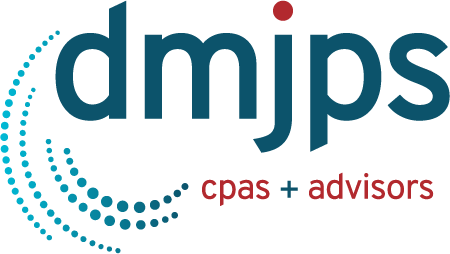Business Entity Selection | Business Consulting | DMJPS & Co., PLLC
Let’s suppose you have a grand idea for a successful business. You’ve established a broad vision and you’ve sketched out a basic plan for launching this venture—all with an eye toward quickly growing it. Maybe you’ve even constructed a prototype of your product and began to test it in the marketplace. However, one question often is overlooked in the excitement of early-stage entrepreneurship: “How should I set up my business?”
The answer really depends on the short- and long-term goals for your venture. Several different business structure options are available to you. To make the right choice, it’s important to understand some basic information about these options.
Let’s first look at the limited liability company or LLC. Setting up your business as an LLC is the quickest and easiest way to get started. It allows you to form as a single-member LLC if you are by yourself, or as a partnership if there is more than one individual involved in the business. LLCs offer certain benefits that can suit your business well if you are still in the early stages, including:
- Limited personal liability
- Less paperwork in terms of recordkeeping and annual reports
- Tax advantages—as an LLC, any losses you incur in your business are passed through to your 1040 tax return, where you can benefit from those losses by using them to offset your adjusted gross income
- A flexible management structure where a designated board of directors or officers is not necessary
Then there is the C corporation or C corp. With a C corp, the corporation does not provide the same pass-through tax advantages as an LLC. Specifically, the C corp does not offer the personal benefit of any business losses, and if you were to take any profits out of your business, it would be taxed twice—once at the corporate level, and again on your 1040 tax return. C corps also require more annual paperwork, such as setting up a board of directors and recording the minutes of required board meetings. However, if you plan on starting small and keeping any profits inside the business, a C corp structure offers unique tax advantages and can also position you advantageously to acquire funding from outside investors.
Outside investors, such as venture capitalists, generally prefer to invest in a C corp, since the structure enables them to exchange capital for stock in the business in which they are investing. If your goal is to one day acquire funding via angel investors or venture capital, then a C corp will make you more marketable to those audiences.
One of the major potential benefits of registering as a C corp is the ability of you and your investors to take advantage of Section 1202 of the Internal Revenue Code, which can bring huge tax savings upon exiting your business down the road. Under Section 1202, a shareholder in a C corp that ultimately sells their stock in the business could be in line to exclude 100 percent of that gain if the stock in the company is listed as qualified small business stock under Sec. 1202. In order to be listed as qualified small business stock under Sec 1202, your stock must fulfill some specific requirements. Among the more notable ones, the shareholder of C corp stock must hold onto it for five years. Additionally, on the date the stock is issued, the issuing corporation must have had $50 million or less in assets. If you wanted to sell your business interest in your company, you could potentially exclude 100 percent of the greater of: gain up to $10 million dollars or 10 times the shareholder’s stock basis, assuming certain other requirements are satisfied. It’s crucial to note that Section 1202 is a complex area of the tax code, one that offers great benefits as well as circumstantial disadvantages. One disadvantage, in particular, is worth mentioning: If you ultimately decide to sell your business, the sale must be structured as a stock deal in order to take advantage of Sec 1202. This could become an issue if a buyer wants to acquire your business in an asset deal. As always, leveraging Sec 1202 is not a “one-size-fits-all” strategy; its suitability for your business depends on multiple factors.
If you think that choosing an LLC or a C corp is a permanent decision, don’t worry. Fortunately, it’s possible to change the structure of your business. For example, you can initially set up your business as an LLC if you seek to take advantage of any pass-through losses on your 1040 return. Later, you could convert it to a C corp to make it easier to secure outside capital from investors and potentially take advantage of Sec. 1202. The ease and applicability of this conversion are contingent on the U.S. state in which the business is registered, so it’s important to determine your business’ goals in order to mitigate against possible headaches that could arise from the conversion.
Setting up your entity structure can seem overwhelming and will require you to ask yourself some tough questions in terms of where your business venture is today, and where you want to take it. To help ensure all of your options are properly evaluated before making a decision, it’s best to consult with a trusted advisor. After all, you want to be sure you’re set up to grow that revolutionary idea into a game-changing business.
Please contact us if you would like to discuss further.


